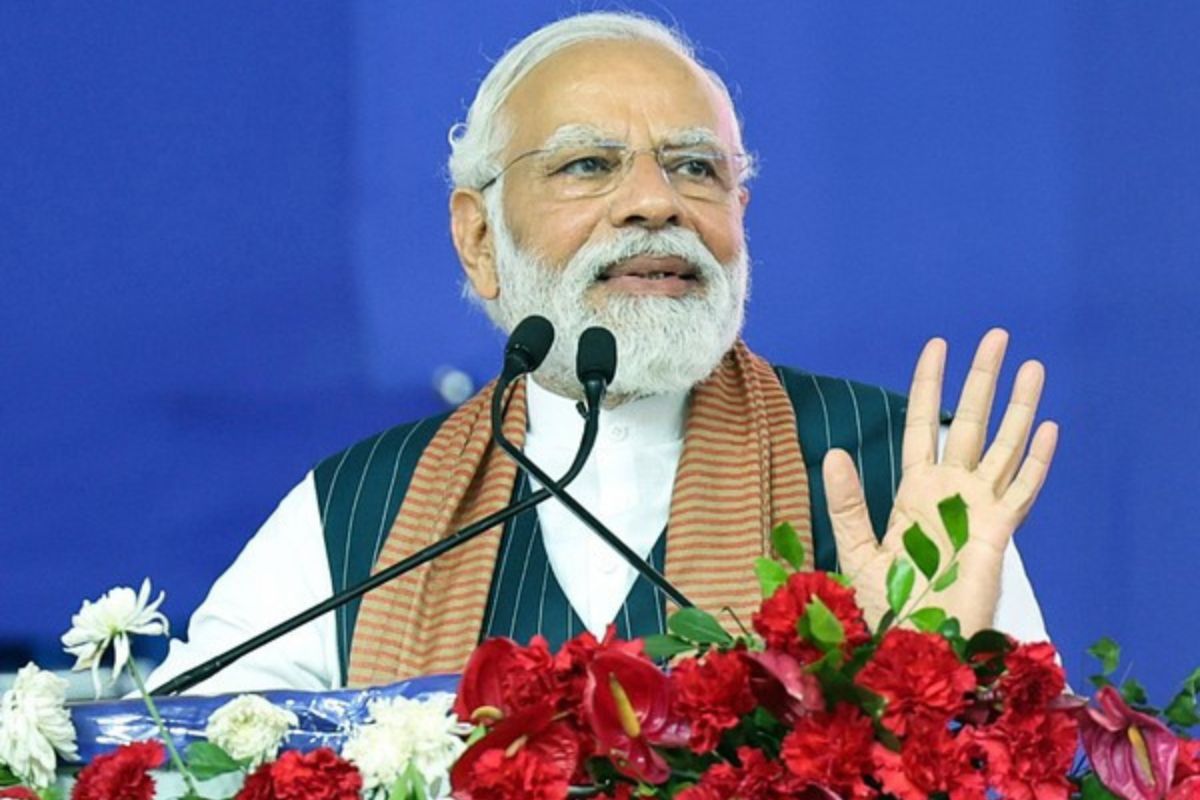PM Modi on 3-day visit to 3 states–MP, Bihar, Assam–from Sunday
According to the Prime Minister’s Office (PMO), the Prime Minister will visit Madhya Pradesh, Bihar and Assam from February 23-25.
PM Modi said that India has worked on the availability, accessibility and affordability of healthcare in the last few years.

Prime Minister Narendra Modi (Photo: ANI)
The pandemic showed us the need for greater collaboration in healthcare and the need to boost global health equity, Prime Minister Narendra Modi said on Sunday in his address to the 76th session of World Health Assembly.
In his address for the event in Geneva, Switzerland, PM Modi said, “Warm greetings to everyone at the 76th Session of the World Health Assembly in Geneva. I congratulate the WHO on completing the historic milestone of serving the world for 75 years. I am sure that the WHO would be setting goals for the next 25 years when it reaches 100 years of service”. The Prime Minister said that India shipped 300 million doses of vaccines to over 100 countries showing its commitment during the time of crisis.
Advertisement
“The COVID-19 pandemic showed us the need for greater collaboration in healthcare. The pandemic highlighted many gaps in the global health architecture. Building resilience in global systems needs a collective effort,” he said.
Advertisement
PM Modi added, “The pandemic also highlighted a need to boost global health equity. During a crisis, India showed its commitment to international cooperation. We shipped almost 300 million doses to over 100 countries. Many of these countries were from the Global South. I am sure that supporting equal access to resources will be a top priority for the WHO in the coming years”.
Emphasising upon India’s ‘traditional wisdom’, the Prime Minister said that after being free from illness, one should also move towards wellness.
“India’s traditional wisdom says that the absence of illness is not the same as good health. We must not only be free from illness but also go one step forward towards wellness. Traditional systems such as Yoga, Ayurveda and meditation, address physical, mental and social aspects of health. I am glad that WHO’s first Global Centre for Traditional Medicine is being established in India. I am also happy that the world is recognising the importance of millets through the International Year of Millets,” he said.
He further said that India’s ancient scriptures teach looking at the world as one family under ‘Vasudhaiva Kutumbakam’.
“During our G20 Presidency this year, we are working with the theme of ‘One Earth, One Family, One Future’. Our vision for good health is ‘One Earth One Health’. We can be healthy only when our whole ecosystem is healthy. So, our vision is not restricted to just humans. It extends to the entire ecosystem, including animals, plants and the environment,” the Prime Minister added.
PM Modi said that India has worked on the availability, accessibility and affordability of healthcare in the last few years.
“Be it the world’s biggest health insurance scheme – Ayushman Bharat, or the massive ramping up of health infrastructure, or the drive to provide sanitation and drinking water to millions of families; Many of our efforts are aimed at boosting health at the last mile. An approach that works with the scale of India’s diversity, can also be a framework for others. We are keen on supporting the WHO for similar efforts in low and middle-income countries,” he said.
Stating the importance of global institutions in the past, the Prime Minister also commended WHO on 75 years of efforts.
“I would like to commend the WHO on 75 years of efforts in advancing Health for All. The role of global institutions like the WHO was certainly important in the past. But it will be even more important in a future full of challenges. India is committed to helping every effort to build a healthier world,” PM Modi further stated.
Advertisement